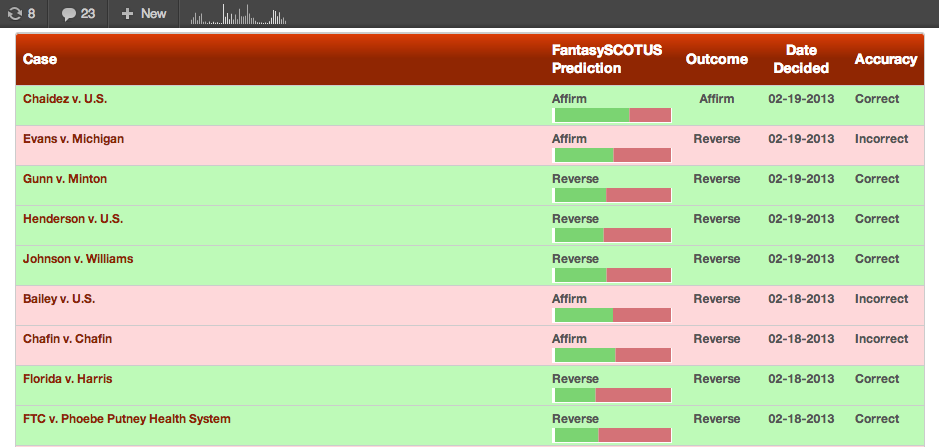From Justice Alito’s solo dissent in Evans v. Michigan:
The prohibition against double jeopardy “had its origin in the three common-law pleas of autrefois acquit, autrefois convict, and pardon,” which “prevented the retrial of a person who had previously been acquitted, convicted, or pardoned for the same offense.” United States v. Scott, 437 U. S. 82, 87 (1978); see Crist v. Bretz, 437 U. S. 28, 33 (1978). As the Court has previously explained, “the common-law protection against double jeopardy historically applied only to charges on which a jury had rendered a verdict.” Smith, 543 U. S., at 466 (emphasis added).1 As a result, the original understanding of the Clause, which is “hardly a matter of dispute,” Scott, supra, at 87, does not compel the Court’s conclusion that a defendant is acquitted for double jeopardy purposes whenever a judge issues a preverdict ruling that the prosecution has failed to prove a nonexistent “element” of the charged offense. Although our decisions have expanded double jeopardy protection beyond its common-law origins, see, e.g., Smith, supra, at 466–467 (acknowledging the Court’s expansion of “the common-law protection against double jeopardy”).
With this Story-footnote:
1 See also Crist, 437 U. S., at 33 (“The Fifth Amendment guarantee against double jeopardy derived from English common law, which followed . . . the relatively simple rule that a defendant has been put in jeopardy only when there has been a conviction or an acquittal—after a complete trial. . . . And it is clear that in the early years of our national history the constitutional guarantee against double jeopardy was considered to be equally limited in scope”); 3 J. Story, Commentaries on the Constitution of the United States §1781, p. 659 (1833) (“The meaning of [the Double Jeopardy Clause] is, that a party shall not be tried a second time for the same offence, after he has once been convicted, or acquitted of the offence charged, by the verdict of a jury, and judgment has passed thereon for or against him. But it does not mean, that he shall not be tried for the offence a second time, if the jury have been discharged without giving any verdict . . . .” (emphasis added)); 2 M. Hale, Pleas of the Crown 246 (1778) (“It must be an acquittal upon trial either by verdict or battle”).
Alito also shifts from an original understanding approach, to look at what the “purpose” of the prohibition was.
Although our decisions have expanded double jeopardy protection beyond its common-law origins, see, e.g., Smith, supra, at 466–467 (acknowledging the Court’s expansion of “the common-law protection against double jeopardy”);Crist, supra, at 33–34, I nonetheless count it significant that the result the Court reaches today finds no support in the relevant common-law analogues that “lie at the core of the area protected by the Double Jeopardy Clause,” see Scott, 437 U. S., at 96. And given how far we have departed from the common-law principles that applied at the time of the founding, we should at least ensure that our decisions in this area serve the underlying purposes of the constitutional prohibition against double jeopardy. See id., at 95–96, 100–101. Yet today’s decision fails to advance the purposes of the Double Jeopardy Clause.
That’s interesting. If the Court is going to ignore original understanding, then at least go with original purpose. But doesn’t that negate the original move towards understanding meaning?
